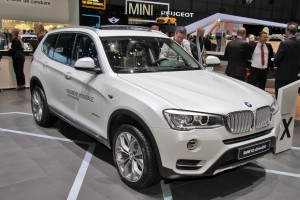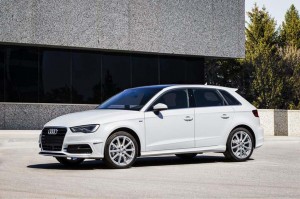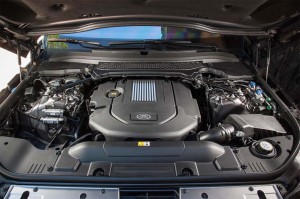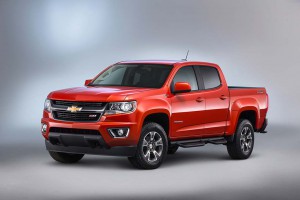Both BMW and Daimler AG, parent of the Mercedes-Benz and Smart brands, have issued formal statements insisting they did not cheat on diesel emissions tests, unlike German rival Volkswagen and its Audi brand.
VW now has acknowledged that 11 million vehicles – including 482,000 sold in the U.S. – were secretly fitted with software designed to help them pass emissions tests. Otherwise, the vehicles delivered increased performance and better mileage but also produced up to 40 times the permissible level of noxious emissions.
Are other automakers cheating? And why would they? What about you, if you’re a diesel owner or still thinking about buying one? Here are some key questions and answers.
Q: We’re hearing reports that other manufacturers, including BMW and Daimler also may have cheated on emissions tests. What do we know so far?
A: The two German makers have issued statements insisting they haven’t cheated. The news reports from Europe are so far based on limited information or a handful of random test results that could prove false or inaccurate. Italy plans to test about 1,000 diesel vehicles randomly, and that could give a better answer. U.S. regulators also are expected to do follow-up tests, possibly using different procedures that wouldn’t be fooled by software similar to the so-called “defeat devices” on VW’s products.
Q: Why did VW cheat and why wouldn’t other manufacturers have to?
A: The Volkswagen models implicated in the scandal are all small-displacement 4-cylinder engines. The maker claimed it had developed a way to keep their emissions at minimal levels without having to use the special urea additive needed by the bigger diesels most competitors rely on. Indeed, this additive is used in 6-cylinder VW diesels that so far appear to meet U.S. and foreign emissions rules. Diesels are inherently dirty engines, but the use of urea and special components, such as catalytic traps, significantly reduce their emission of smog-causing oxides of nitrogen and micro-fine particulates.
Q: Which VW models are affected by the EPA alert?
A: All VW vehicles equipped with the maker’s EA 189 diesel engine. In the U.S., that includes 482,000 vehicles : the Jetta, Beetle, Audi A3 and Golf from the 2009-2015 model years, and the Passat from the 2014-2015 model years. VW is expected to recall them when it comes up with a fix. In the meantime, it has told U.S. dealers not to sell models equipped with the 2.0-liter engine – which accounts for about 25% of its sales in this country.
Q: If you own one of those VW models, what should you do? Wait for a repair? Sell it?
A: The good news is that the software problem doesn’t create a safety risk like General Motors’ ignition switch defect. So, keep on driving. Selling one of the affected vehicles now would likely mean taking a real hit on your trade-in price. Conversely, if you don’t mind owning one, you might be able to get a steal on a used VW diesel.
Q: Is VW going to fix these vehicles? If so, what would that entail?
A: That’s a question VW itself is trying to answer. The software cheat apparently was developed because the German maker otherwise couldn’t deliver everything it promised: low emissions, high mileage and good performance. It will try to fix things with new software code, but if it can’t it may have to make modifications to the EA 189 engine itself. There is even the possibility VW might be forced to replace some or all of the vehicles or pay owners if the fix impacts performance and mileage. A number of class action lawsuits have been filed on behalf of owners to cover potential losses, as well.
Q: Will diesels, more broadly, survive this crisis?
A: “This is a black eye for the diesel,” says Ed Kim, research director at AutoPacific, Inc. The technology is wildly popular in Europe, and likely to remain so. Here in the U.S., diesels fell out of favor in the U.S. in the late 1980s because of the problems of older-styled engines, only recently regaining momentum. Kim and others expect a sharp decline in sales, at least short-term, in the light-duty market. But diesel should remain the dominant powertrain technology in the medium and heavy-duty truck segments.
(For more on how the VW scandal will affect diesel sales, Click Here.)
Q: Should I still consider buying a diesel? Or is a hybrid or regular gasoline car a better solution?
A: Hybrids and so-called clean diesels profess to address the same issue: reducing emissions of global warming gases while delivering great fuel economy. But where hybrids tend to sacrifice performance, diesels score on the fun-to-drive factor. They tend to get lower fuel economy than gas-electric models in the city, but shine on the highway. That said, the latest turbocharged conventional gas vehicles are getting better and better mileage, often without sacrificing performance, either. Check the data and go for a test drive to see which model is right for you.
Q: Who else offers a diesel in the U.S.?
A: There are now 13 brands selling diesel vehicles here, among the newest Jaguar and sibling Land Rover. European marques, including VW, Audi, Mercedes and BMW, dominate, but American, and even Japanese, makers have joined the fold. Fiat Chrysler scored a hit with the Eco Diesel version of its Ram 1500 pickup. Nissan will soon add a diesel to its redesigned 2016 Titan, and Chevrolet has diesel options for its Cruze sedan and new Colorado pickup. Ironically, Mazda wanted to offer a small diesel that also skipped the use of urea, but it couldn’t meet emissions without sacrificing performance and mileage.
(Click Here for a review of the Range Rover Sport Td6 diesel.)
Q: What will happen to Volkswagen now?
A: It’s likely to take some time before we learn the extent of the repercussions from the cheating scandal which some fear could destroy the company. It has already set aside $7.3 billion to cover potential costs – but that could prove low. It potentially faces $18 billion in fines from the EPA alone. There’s also a Justice Department investigation that could see criminal charges and fines. And a number of class action lawsuits have been filed. Authorities around the world are now investigating the scam and could take actions of their own.
(Click Here for the latest on the VW scandal.)
Q: How common is cheating in the auto industry?
A: We’ll likely never know the full extent of the problem, as some makers have undoubtedly gotten away with their own scams. But many have been caught in recent years. VW itself was first found to be cheating on emissions tests back in 1973. Hyundai and sibling Kia last year paid fines for falsifying fuel economy numbers. Ford also overstated mileage. General Motors was fined $900 million for concealing an ignition switch defect for a decade, and Toyota was hit with a $1.2 billion fine for improper actions related to its unintended acceleration issues.
(VW cheated on emissions as far back as 1973. Click Herefor the story.)





This is like the cheating that goes on in Auto Racing. It’s based on what the rules don’t say, ie;It may say that the car has to pass the emissions test but it does not say the car then has to run on that same computer/ecu map all the time. They do what the letter of the law says, not what the rule was supposed to say.
It’s a shame that this has happened, here in the US VW has been having problems with sales and the VW Diesel has been a small but bright spot for them. This is really big enough to cause major financial problems that could bring the whole empire down.
Ummmmm….. my 2014 uses AdBlu……as do all the new VWs… so it must have more to do than that…….
Paul, yes all 2015 VW’s do use urea injection, however, 2009-2014 Golfs and Jettas don’t. My wife and I own 2 2012 VW Golf TDI’s and neither uses the adblue. But perhaps that will change once VW figures out how to correct this problem. As a long time VW fan and owner, I’m so disappointed in the decision this company made to cheat the system, especially when they truly make some of the finest cars on the road today. There’s really not much else I’d rather drive. We’ll keep our cars, for they are paid for, but my hope is that in addition to fixing this problem, VW will compensate its loyal owners to offset the certain loss in resale value on all their vehicles as a result of this scandal.
Same here…. I will keep mine and enjoy it. My dealership is incredible and treats me better than my brother’s Infinity and Lexus dealers do. I get a loaner for ANY service….. But I do hope we get compensated for the loss too. I paid premium bucks for a premium car with resale that was equal to Mercedes and BMW…….and now I’ve got a great car but no value at all…..this is my Second TDI the first was an’09 Jetta and this is a ’14 Passat. The thing gets 35mpg pulling a trailer with two Harley’s on the back at 65mph……… awesome car………
I doubt VW’s empire which consists of many brands will crumble due to some scandal over exhaust emissions. They certainly deserve a black eye and people should be held accountable for their actions. What I have read here and elsewhere is that these diesel engines do actually pass all emissions test and that the software just disables some emission control when the vehicle is in use. Thus it would seem that the fix is easy and just a proper software update that runs the emission controls all the time as intended while meeting all emissions requirements. A loss of a few miles per gallon may not make diesel owners happy but never the less if the engines meet all emissions requirements then I would think that all is good. Naturally some folks will be unhappy no matter what and VW may need to buy their cars back but that isn’t a huge deal as they are just resold for a small loss.
I disagree with the MPG comment. People paid a premium for the diesel engine; appx $3K USD. If that figure drops by even 10% you’re looking at about 38 MPG. Still not bad but my wife’s Mazda CX-5 get 36 MPG on the highway – and the car was less expensive and runs on gas which is still cheaper than diesel fuel. This is going to be a bigger problem than previous thought.
I have a 2015 TDI and so far I averaged city and highway 4.4 litres for 100 kilometre. Most of the time I get 4 litres to 100 kilometre. If you make the conversion, that’s very close to 60 miles on a US gallon.
If the solution cuts the power and milage by 10% I would still prefer a VW to anything on the market because of the quality you get with a VW.
Sales of VW is slow in the US because they just build ugly and boring vehicles and names that are hard to pronounce (Touareg) and have no english meaning. Other then the VW Bug there price points are really high trying to ride on the “German Engineering” concept. However, VW always had a good spot for diesels. They first came to the US in the Passat in the late 70’s & 80’s and were quite popular since gas went from $.50 to .$.75 a gallon. How can you not want something that got 50 MPG on diesel that was at the time lower cost than gasoline.
George, beauty is in the eye of the beholder. To me, the timeless, simple design without garish and unnecessary chrome, sheet metal creases, etc. is desirable to me. In fact, I think most of what’s being offered out there outside of VW is ugly and boring. I agree with you on the names, though, that are really unappealing for the most part. I like Golf, Jetta, and Scirocco, all named for winds, and Passat, meh, but they should find alternative names that are appealing for their other offerings in North America.
Really no reason for a TDI. An edmonds.com long term test with a 2012 Mazda 3 4 door hatchback with a Skyactiv engine comes within 2 to 3 mpg of my 2003 Jetta TDI Sportwagen on the highway (both automatics), 3-4 mpg in the city, the Mazda manages it on cheaper fuel, no expensive turbo, diesel fuel injectors, or diesel injector pumps, and a steel timing chain engine (no timing belt to replace at 80k).
http://www.edmunds.com/mazda/3/2012/long-term-road-test/mpg.html
I was shocked to hear the news about the emission issues. I have been a VW fan and supporter for almost 55 years. I currently have a 2014 Passat TDI and am very happy with it. It is equipped with the adblue feature as it was a late 2014 production. This is the 8th VW that I have owned, being 5 Type 1 Bettles and 2 Rabbits and the current Passat. They were all excellent cars and served well. I am very confident that VW will do whatever it takes to make things right and punish the individuals responsible. I still like VW but I feel like my loyalty and trust for over 55 years has somehow been betrayed. If Ferdinand and Ferry Porsche knew about this issue, they would probably roll over in their graves, multiple times. I am getting ready to retire within 6 months or so and plan on several road trips, which is why I got the car. Good milage, plenty of room, and sufficient power. I just hope it all works out.
My 2010 Jetta SportWagen is STILL the best and most fun car I’ve ever owned! I am 56 years old and had 2 Mercedes previous to this BLAST of a car. I hope to buy another one!
Let’s review my decision to purchase my 2013 Sportwagon TDI:
For years, I heard about the turbo diesels running around in Europe and how much people liked them. The EPA tested, rated and certified the diesel and its mileage five years before I bought mine. Likewise, the State of California, the most stringent state tested, rated, and certified the engine. Every automobile critic in the world raved about the Sportwagon, including Consumer Reports and AAA. They found the mileage to exceed the EPA ratings for the most part. This overrode my previous vow not to drive another VW based on my experiences with a 1971 Type 3 Squareback and all of its problems. Another factor in my purchase is that I expect this to be my last new car, barring wreckage, and I selected the diesel because of its noted longevity. I didn’t want to be the old man driving a Mercury Monarch for the next 20 years, so I selected something that would age well.
After purchase and driving it around the car grew on me. Best handling, acceleration, braking, and fuel economy of any car I have owned over 48 years. Now that diesel fuel is considerably lower cost than Southern California gasoline, there is more of a bonus. If there is a compromise in economy and performance after VW fixes the exhaust issue, I will probably still enjoy this car. I expect Volkswagen to do right by its customers and dealers over this issue. Dealers? Yes, the lovely salesperson that sold me this car also owns one. They didn’t know anything about the cheating. Seems that no one did. That is a lot of people that were fooled.
Everyone will need to decide for themselves how they feel about the VW scandal and the VW diesel that they own. IME most people with VW diesels see close to 50 mpg highway depending on how they drive. There is no equivalent gas engine model that delivers the same performance, low maintenance or longevity in the equivalent vehicle.
VW and similar diesels typically run a 125K or more miles before needing a valve job and then run another 125K miles before a complete rebuild. The injectors, turbo etc. usually last 150K miles or more. That is why the clean diesels prove to be a good investment for most people. Gas engines typically need a valve job and complete rebuild at about three quarters or less the mileage of a diesel depending on how the gas engine is operated.
IMO just because some rogue engineers at VW took it upon themselves to write improper ECU code does not make the brand bad nor VW diesels bad. Consumer tests have shown that with gas engines the mpg can vary as much as 30% and with diesels about 10% so I personally would not lose sleep over a loss of a few mpg to comply with emissions regs.
I understand other people may feel differently and they are fully entitled to do so but it doesn’t change anything. The perception that some folks hold that the entire VW company was out to deceive consumers is baseless. Probably less than a handful of people ever knew about the improper software code and intermittent operation of some of the emissions controls. Those people should go to prison IMO as they have violated the public’s trust and the emissions laws.